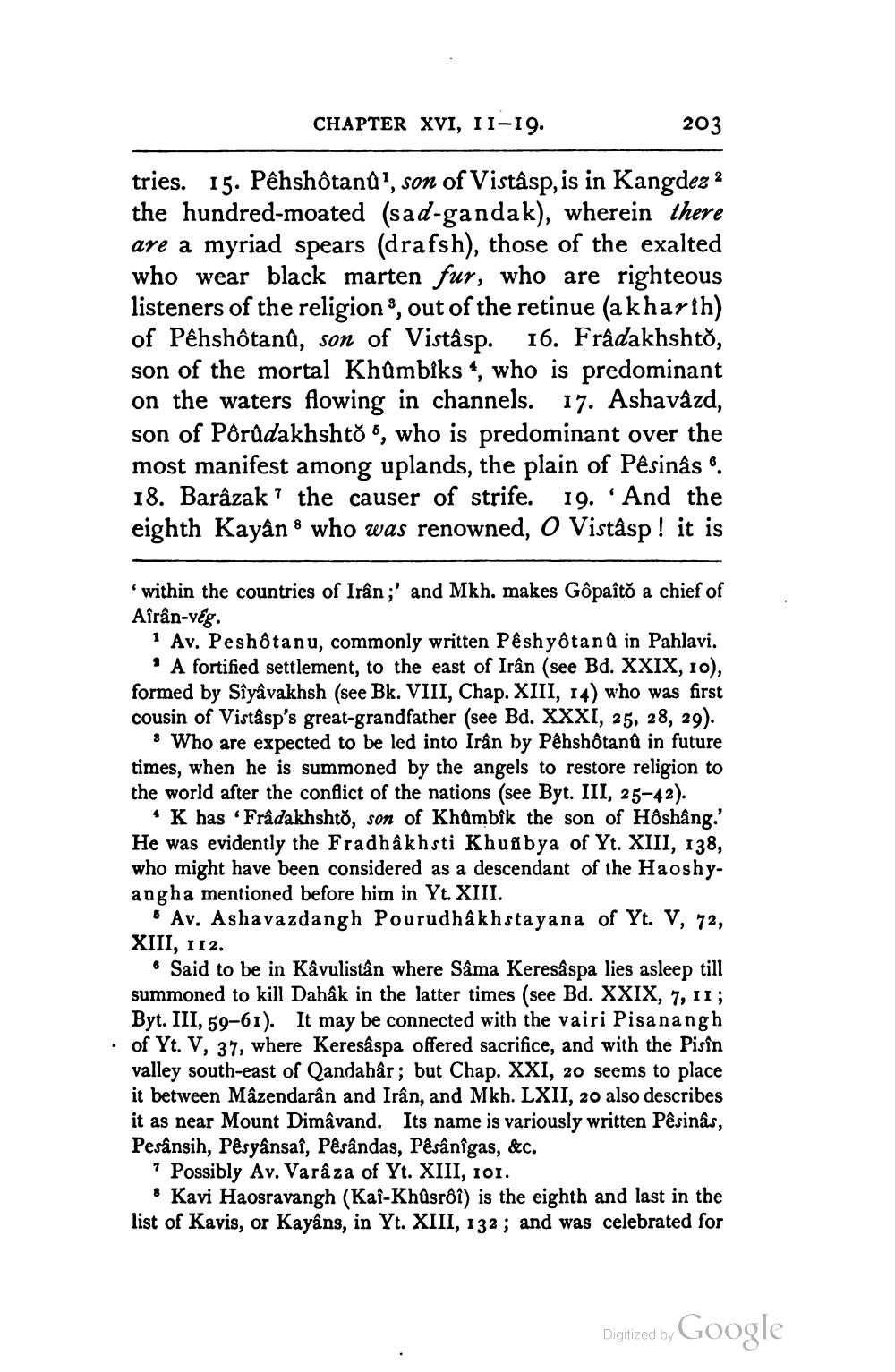________________
CHAPTER XVI, 11-19.
tries. 15. Pêhshôtanû1, son of Vistâsp, is in Kangdez 2 the hundred-moated (sad-gandak), wherein there are a myriad spears (drafsh), those of the exalted who wear black marten fur, who are righteous listeners of the religion3, out of the retinue (akharth) of Pêhshôtanu, son of Vistâsp. 16. FrâdakhshtŎ, son of the mortal Khûmbiks, who is predominant on the waters flowing in channels. 17. Ashavâzd, son of Pôrûdakhshto, who is predominant over the most manifest among uplands, the plain of Pêsinâs ". 18. Barâzak the causer of strife. 19. And the eighth Kayân who was renowned, O Vistâsp! it is
"
8
203
'within the countries of Irân;' and Mkh. makes Gôpaîto a chief of Aîrân-vég.
1 Av. Peshôtanu, commonly written Pêshyôtanû in Pahlavi.
A fortified settlement, to the east of Irân (see Bd. XXIX, 10), formed by Sîyâvakhsh (see Bk. VIII, Chap. XIII, 14) who was first cousin of Vistâsp's great-grandfather (see Bd. XXXI, 25, 28, 29).
* Who are expected to be led into Irân by Pêhshôtanû in future times, when he is summoned by the angels to restore religion to the world after the conflict of the nations (see Byt. III, 25-42).
K has 'Frâdakhshto, son of Khumbîk the son of Hôshâng.' He was evidently the Fradhâkhsti Khuñbya of Yt. XIII, 138, who might have been considered as a descendant of the Haoshyangha mentioned before him in Yt. XIII.
Av. Ashavazdangh Pourudhâkhstayana of Yt. V, 72, XIII, 112.
Said to be in Kâvulistân where Sâma Keresâspa lies asleep till summoned to kill Dahâk in the latter times (see Bd. XXIX, 7, 11; Byt. III, 59-61). It may be connected with the vairi Pisanangh of Yt. V, 37, where Keresâspa offered sacrifice, and with the Pisîn valley south-east of Qandahâr; but Chap. XXI, 20 seems to place it between Mâzendarân and Irân, and Mkh. LXII, 20 also describes it as near Mount Dimâvand. Its name is variously written Pêsinâs, Pesansih, Pêsyânsaî, Pêsândas, Pêsânîgas, &c.
7 Possibly Av. Varâza of Yt. XIII, 101.
* Kavi Haosravangh (Kaî-Khûsrôî) is the eighth and last in the list of Kavis, or Kayâns, in Yt. XIII, 132; and was celebrated for
Digitized by
Google




